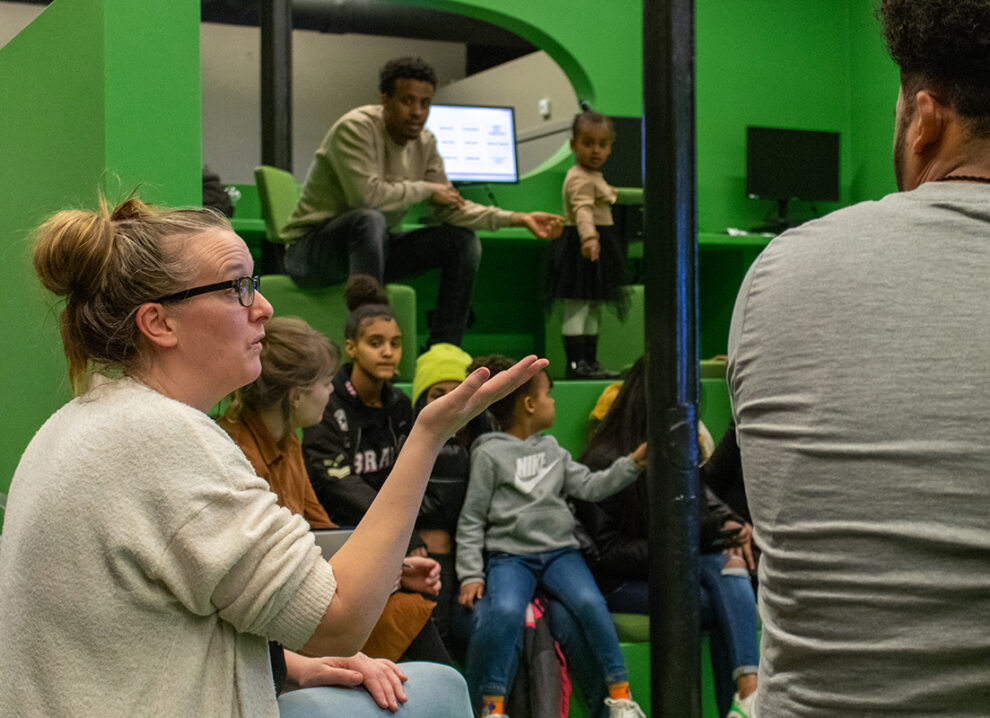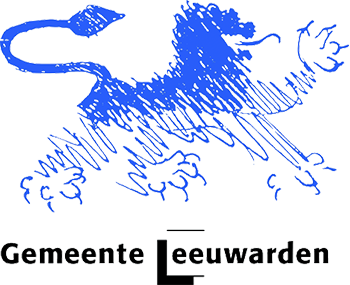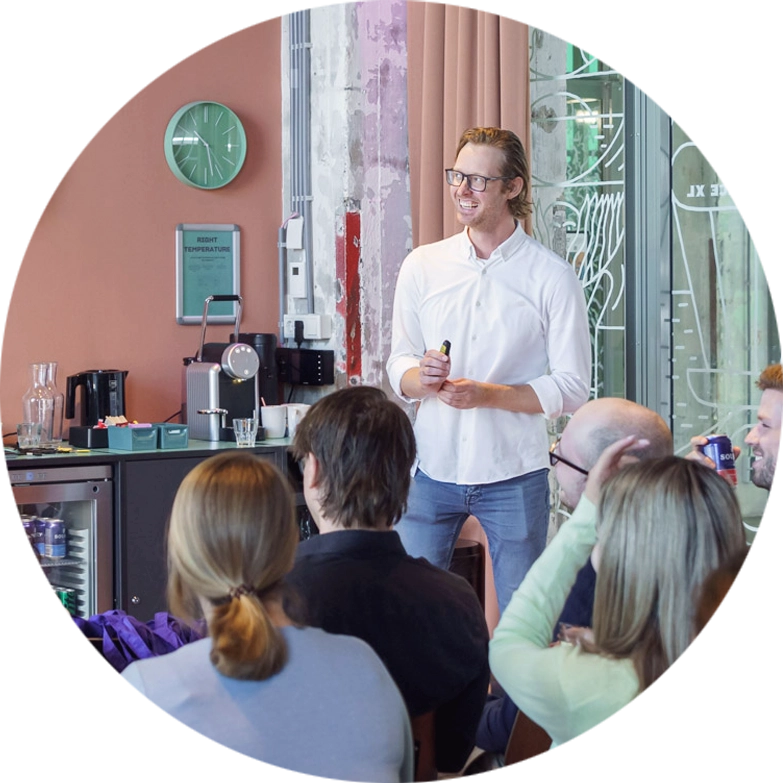Examples of social design in research


Social design is a design approach that addresses social issues in close collaboration with stakeholders. But social design delivers more than just end results and interventions. For example, the process of “designing together” often provides researchers with new insights and valuable research data.
At 8D, we combine ten years of experience with our own social design methodology. That working method is pragmatic, goal-oriented and fully equipped to support researchers in achieving concrete results; always in an iterative and co-creative manner. In this blog we share three inspiring examples from our portfolio. Each of them collaborations with progressive researchers who have assigned have assigned social design a central role in their research design.
Navigate directly to a case:
– Case 1: Game-based research with a social design approach
– Case 2: Sexual education through collaborative design.
– Case 3: Compassionate Technology in Mental Health.

![]()
Reason
DigiJuf investigates how speech technology and gaming can contribute to improving the language skills of elementary school students. In collaboration with the Center for Language and Speech Technology at Radboud University Nijmegen, 8D developed a creative prototype that not only motivates children to read and speak, but also generated valuable data for scientific research. This approach resulted in an award-winning scientific publication, a milestone that underscores the added value of co-creative and iterative research.
Approach
DigiJuf’s social design approach began with listening to the target audience. By interviewing elementary school children, we discovered what they find important in reading activities. They mentioned two notable pain points: reading often feels lonely, and they lack influence over the flow of the story. With these insights, we designed a game concept that focuses on cooperation and autonomy. In the game, children create a story together by taking turns speaking sentences. These sentences are converted live to text, with game principles keeping motivation high.
In addition to the game design, we supported the research group with drafting a research protocol, conducting tests in elementary schools in the Northern Netherlands and documenting the data collected. The functional prototype provided a great opportunity for the research group to identify the opportunities and limitations of the speech technology developed by the CLST. As well as how children assess each other’s speaking and reading skills.
Results
Extraordinary to see during the test rounds was that children started to articulate better after only about four sentences. The reason: they wanted to see their contribution as best as possible in text on the screen. And earn points from their classmates, of course! As designers, we carefully examined whether the game principles did what they were supposed to do. At the same time, the prototyping phase provided relevant research data on which to base a scientific publication. Main conclusion: children around ten years old are excellent judges when it comes to speaking and reading accuracy; similar to adults. This suggests that peer feedback by children could be a valuable addition to educational apps that use speech technology. The research group won the “Best Paper” award from Trinity College in Dublin with this study.
What we learned from this project
DigiJuf shows how social design not only supports educational innovation, but also enables new research methodologies. During this project, we realized that our way of testing with end users is so valuable that, if well documented according to the wishes of researchers, it can form a solid basis for scientific publications. Since then, we have been actively focusing on facilitating such pathways and thinking along to make our approach fit seamlessly with the needs of academic research.


![]()
Reason
Shkorey makes information on sexual health and parenting topics accessible to newcomers to the Netherlands. The core principle? Developing educational materials in co-creation with the target group. Team 8D played a key role in this and worked closely with the Eritrean community in Leeuwarden. This intensive social design process led to an educational game application with storylines on topics such as sexual health, pregnancy and parenting. The success of Shkorey is now getting a sequel: 8D and the Shkorey Foundation are using the knowledge and experience gained for a similar project with the Arab community in Leeuwarden. Here too, co-creation is central, with the ambition to again design customized solutions that meet the specific needs of the target group.
Approach
Shkorey was initiated by Geertje Postma and builds on MyJorley, an earlier study on the application of serious gaming around sexual and reproductive rights. The conclusions of this research, together with intensive dialogue with the Eritrean community, formed the basis for the project design of Shkorey. This design was funded by ZonMw within the program “Unintended Pregnancy and Vulnerable (Young) Parenthood.
What distinguishes Shkorey is its process-oriented approach. Postma chose 8D because we did not propose a fixed game concept, but a flexible process in which the target group actively participated in designing gameplay and storylines. This resulted in an inspiring co-creation process in which Eritrean youth, caregivers and cultural mediators worked together intensively. During this process, previously sensitive issues were discussed increasingly openly, both among youth and between youth and caregivers. A wonderful result of this was the creation of an Eritrean youth film team. This team made an indispensable contribution to the video content, storylines and characters in the game and to this day is active in creating online content on the topics discussed.
Results
Shkorey is a supported game application with culturally sensitive information on sexual health, pregnancy and parenting. A key component of the game is “Help in Your Neighborhood,” which brings appropriate local support and care closer. However, the app delivered more than just the end products and interventions. Above all, the method used – with plenty of space and participation for the target group – proved to be an integral and effective approach to making sensitive topics discussable. This offers valuable insights for researchers and designers working with similar challenges.
Following delivery of the app, researchers from Rutgers Knowledge Center Sexuality used the intervention to conduct qualitative research on the usability of the app and the topics covered. This research focused on two focus groups: Eritrean youth and caregivers in different areas of the Netherlands. A number of research questions were integrated into the game, while input from professionals was collected through questionnaires. The final report of this study was released in spring 2024.
“Many Eritrean newcomers found the app a convenient and valuable resource, especially thanks to the Tigrinya language option and the flexibility to explore information at their own pace. This allowed users to learn about important topics such as safe relationships, pregnancy and parenting in an approachable way. Professionals who used the app especially appreciated how Shkorey makes topics discussable in a way that resonates with the target audience’s perceptions. “
(Source: Rutgers Knowledge Center Sexuality)
What we learned from this project
Shkorey’s process is a powerful example of social design in action: bringing together diverse perspectives to arrive at impactful and sustainable solutions early on. For us, this project proved that co-creation not only works, but often delivers more than could be anticipated beforehand.
![]()

Reason
The use of technology promises to be a solution to the great strain on mental health services. But can technology be used in a field where human contact and important human values such as compassion must be paramount? Can we design technology based on the value of compassion to contribute to a sustainable future for mental health care? The research program Compassionate Mental Health Technology at the University of Twente focuses on these questions. 8D is involved as a design partner in a multidisciplinary team of researchers, practitioners and practice experts. Together we take on the challenge of designing and analyzing compassionate technology for mental health care.
Approach
Team 8D is developing a card game as a research tool for the PhD project of researcher Charlotte van Lotringen, led by Prof. Dr. Matthijs Noordzij. The creative intervention focuses on the use of smartwatches within mental health care, particularly in group lifestyle treatments. The game introduces this technology to professionals and clients in a compassionate, personal way. The game also encourages reflection on the benefits and limitations of the smartwatch. Our team had a great starting point; the researchers themselves had already tested a lo-fi prototype with the target audience to identify frameworks for the research. Based on that initial exploration, it was decided to engage a design party with a lot of experience – and we are very happy that we became that!
Results
Van Lotringen will use the card game as a research tool with which to examine the theory of compassionate technology in practice. In October 2024, a baseline measurement of the treatment without the deck of cards and the smartwatch started; the next phase will be a measurement with the deck of cards and the smartwatch. On which we will base the final version of our intervention.
Want to stay informed about this project and exactly how the research is being handled? Feel free to contact johan@8d.nl for more information.
Social design can support researchers in addressing complex social issues while increasing the engagement of target audiences. This often leads to valuable results, both academically and socially. Are you considering integrating social design into your research, but not yet sure how? We are happy to think with you, for example, about how to incorporate an iterative approach into your research application. Join our Monthly Online Question Time or ask Johan directly via mail or Linkedin. We also have in our knowledge vault much information available. For example, read about how design can function as a research tool and view work by researchers who have serious gaming as a design strategy have applied.
